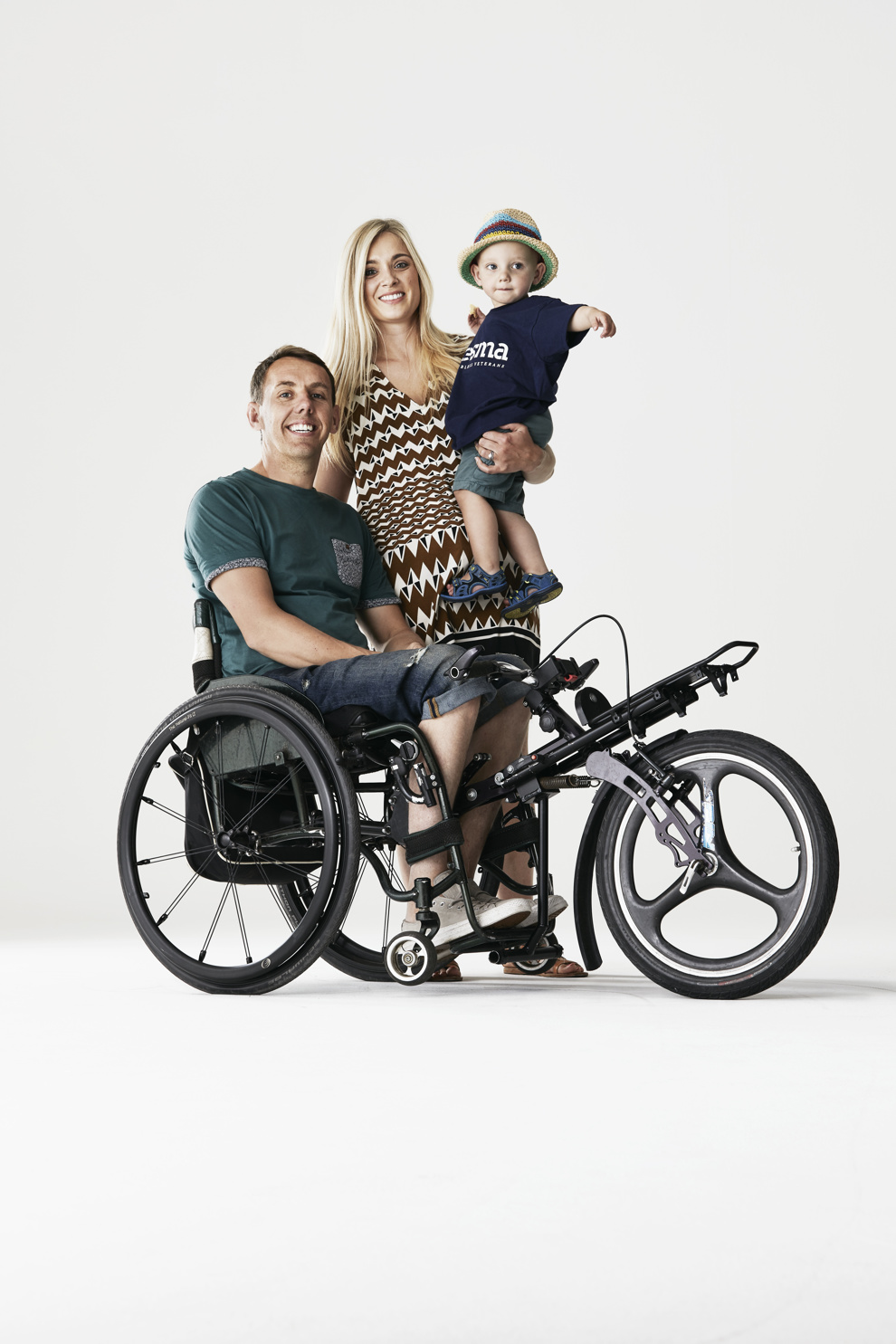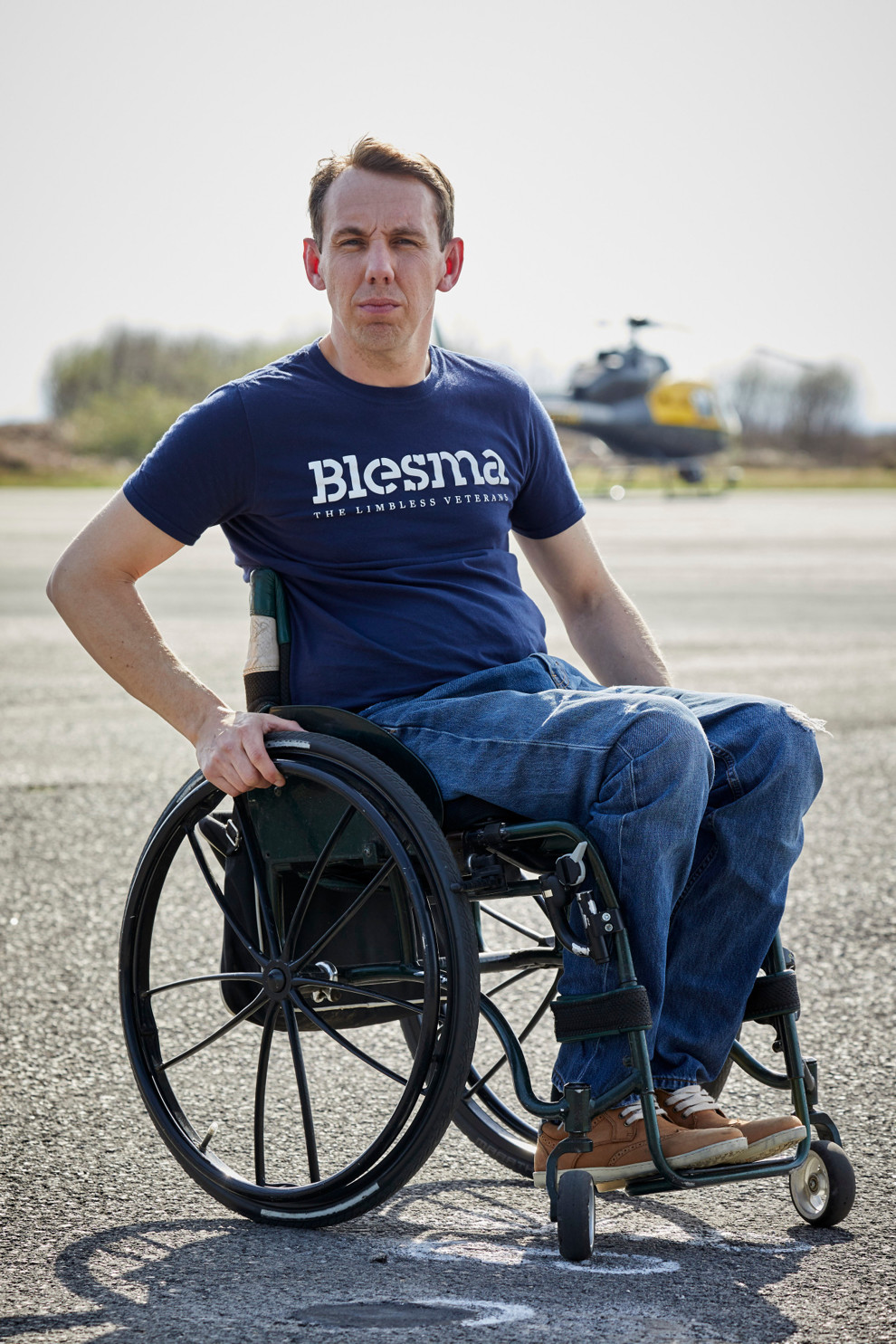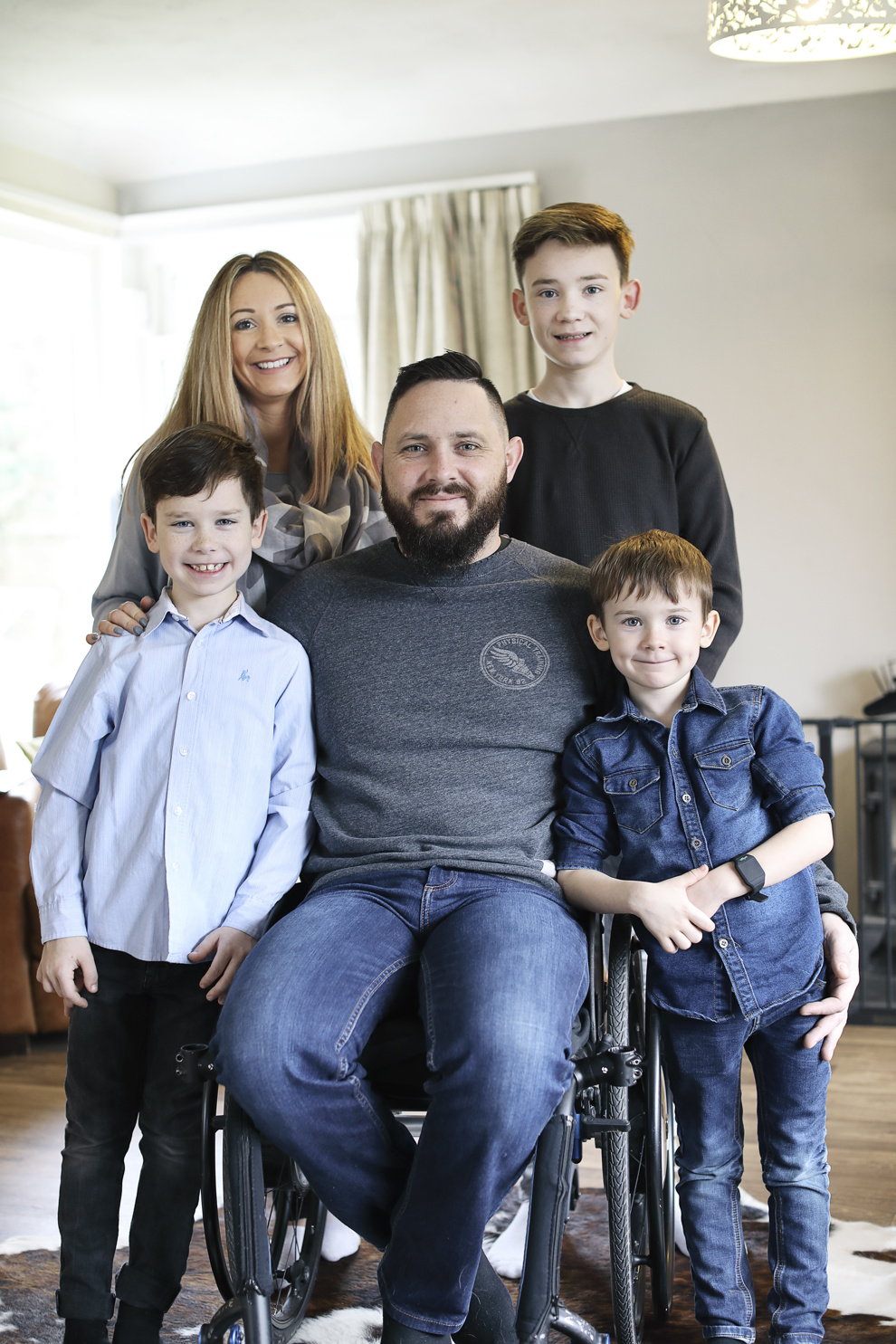A new research study, spearheaded by Blesma, will aim to understand the experiences of families living with loss of use of limb. The findings will influence how the Association supports Members going foward.
In the summer of 2018 Blesma published pioneering research that revealed the necessity for a radical new approach to supporting veterans and their families who were trying to cope with the wide-ranging impacts of limb loss.
The 18-month study, which interviewed more than 70 Blesma Members and their immediate families, identified the need for significant changes in the way support was given to both Members and their family carers.
The report – Caring and Coping: The Family Perspective on Living with Limb Loss – came to be known as the Blesma Families Project and immediately fed into the Association’s working practices. Vitally, it also allowed the development of the Living With Limb Loss Support Model, which enabled both civilian and military services to provide better support to families dealing with limb loss.
Now, Blesma hopes to revolutionise charity and statutory body service delivery once again – this time for those living with the loss of use of limb/s.
“Currently, there is no UK research into the impact on the families of veterans living with muscle function loss or paralysis,” says Blesma’s BSO (Prosthetics) Brian Chenier.
Shaping the future
“This pioneering study will once again be led by Blesma and conducted by the Veterans & Families Institute at Anglia Ruskin University, with funding from the Forces in Mind Trust (FiMT).
“It will seek to understand the primary issues and needs not just of the Blesma Member living with the loss of use of limb/s, but of their family members, too.
“Blesma has existed for close to 100 years. In that time it has helped change policy and has influenced major milestones such as War Pensions and the Motability Scheme. Our Members expect Blesma to be at the forefront of these kinds of research projects. The Association’s core business is to support its Members with everything from practical support and advice to fellowship and fulfilment through activities and events. That’s why the Association will be heavily involved in this research from the very start.
“We’ll help shape the questions, we’ll play an intrinsic role in identifying the Members the research initially wants to target, we’ll promote the opportunity to get involved, and we’ll act as a guiding hand for the research team,” says Brian.
“Blesma and its Members will ultimately be the ‘end users’ of the research, so it’s vital we are involved at every stage.”


Another pioneering study
The new project is currently looking to recruit 15 families to participate in the first stage of the research – hour-long interviews that will be carried out by phone or video conferencing.
Much as with the original study, it is hoped that by Members sharing honest accounts of the challenges they and their close network experience in their daily lives, Blesma will be able to better support its membership in the future, as well as influence other charities and statutory bodies that provide health and social care.
“Blesma was the first organisation to look at the family in relation to limb loss on an international, let alone national, scale,” says Hilary Engward, project leader and senior research fellow at Anglia Ruskin University’s Veterans and Families Institute, who will be working alongside research fellow Maria Iancu on the new study.
“Past research focused on veterans, with little recognition of the role of their families. To a large extent, the family has been neglected. For that reason, the focus of the first Blesma Families Project was very much on the everyday family experience of living with loss of limb.
By listening to how people had coped or managed in society, we were able to provide targeted support. Now we want to listen to people living with loss of use of limb to understand their everyday family experiences. We want to find out what has worked for them and what hasn’t, what has been difficult and, importantly, why something did or didn’t work. The more they are able to tell us, the better.
“Nobody is asking the family of the individual living with loss of use of limb how they are coping, not just in the veteran community but anywhere. The family – who are often the unpaid carers – play a big role in the recovery process, but it is assumed that if the veteran is coping then so is the family. We previously found that was simply not the case,” says Hilary.


A strong partnership
The success of the first study, which has been incorporated not only into Blesma’s working practices, but is also part of the GP curriculum training model and civilian care systems, has led to the Forces in Mind Trust funding the second study. This will allow Blesma and Anglia Ruskin University to continue their strong partnership, with hopes of a similarly comprehensive understanding and end results.
“FiMT’s mission is to enable ex-Service personnel and their families to make a successful and sustainable transition when they re-join civilian life,” says Clare Crookenden, Grants Manager at FiMT.
Blesma is there to help us, but if it doesn’t know the problems we are having how is it going to give us the support we really need? The Association is striving to make things better for its Members. Taking part in the survey will allow you to highlight the challenges and barriers you and your family face, and perhaps Blesma can help with that in the future.
Peter had both his legs amputated following a roofing accident in 2010. He took part in the first study, the Blesma Families Project, waving his anonymity to encourage fellow Blesma Members to get involved with the new study
“We do this by generating an evidence base which we hope will then create policy change, whether that’s within Armed Forces charities like Blesma, government departments like the NHS, or more local health trusts. We don’t want research to just sit on the shelf, so the Blesma Families Project and the development of its Living With Limb Loss Support Model are really good examples of how research has had a positive impact – not only on the beneficiaries of one charity but in being able to enhance national understanding. This new project is equally as ambitious, and we hope it will create similar results.”
Three stages of research
The research will be split into three phases. Initial 60-minute interviews (by telephone or Zoom/FaceTime) will run until June. A more detailed questionnaire will follow from June to October, before a final round of focused interviews will take place from September through to February 2022. The final report will be published in July 2022.
“Members will be able to talk honestly and openly to a dedicated and experienced researcher who wants to listen to what life is really like and learn what really matters to them,” says Brian.
“Ultimately, Blesma will get an intimate yet anonymous view of Members’ lives, and will then be able to assess the support it provides. If a Member has the slightest inclination that they and their family might be useful for this study, I would urge them to get in touch with Maria at Anglia Ruskin University.”
How to take part in the research
The research team is looking for 15 families to participate in the first stage of the study. They would particularly like to hear from the following
- Veterans whose loss of use of limb is attributable to military service but NOT Operations Telic or Herrick
- Veterans whose loss of use of limb occurred during service but NOT as a result of combat injury
- Veterans whose loss of use of limb occurred after transitioning out of the military
Participants will be required to invite up to four members of their family network (aged 18 or over) to participate. By ‘family’, Blesma means those who are active in supporting Members’ overall health and wellbeing. This could include biological relations (parents and siblings, for example), those related through partnership or marriage, or friends.
Participants must be willing to be interviewed individually by the research team for approximately 60 minutes by either telephone or conference call. The session will enable them to talk about their experiences and problems, as well as how they may have overcome them.
All interviews will be recorded (for audio only) but Members’ identities will not be referred to in the reporting of the study. All information provided will be anonymised and kept confidential. Personally identifiable information (such as names and places) will be removed from the data.
If you are interested in being part of this project, please contact Dr Maria Iancu on maria.iancu@aru.ac.uk to discuss the study in further detail.
We can help
We are dedicated to assisting serving and ex-Service men and women who have suffered life-changing limb loss or the use of a limb, an eye or sight. We support these men and women in their communities throughout the UK. Click the link below to find out the different kinds of support we offer.
Get Support
Leave a comment
Join fellow Members and supporters to exchange information, advice and tips. Before commenting please read our terms of use for commenting on articles.